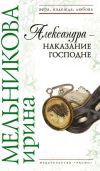Читать книгу "Лучшие романы сестер Бронте / The best of the Brontë sisters"

Автор книги: Эмили Бронте
Жанр: Иностранные языки, Наука и Образование
Возрастные ограничения: 12+
сообщить о неприемлемом содержимом
Another effort set me at liberty, and I stood erect before him.
“And your will shall decide your destiny,” he said: “I offer you my hand, my heart, and a share of all my possessions.”
“You play a farce, which I merely laugh at.”
“I ask you to pass through life at my side – to be my second self, and best earthly companion.”
“For that fate you have already made your choice, and must abide by it.”
“Jane, be still a few moments: you are over-excited: I will be still too.”
A waft of wind came sweeping down the laurel-walk, and trembled through the boughs of the chestnut: it wandered away – away – to an indefinite distance – it died. The nightingale’s song was then the only voice of the hour: in listening to it, I again wept. Mr. Rochester sat quiet, looking at me gently and seriously. Some time passed before he spoke; he at last said –
“Come to my side, Jane, and let us explain and understand one another.”
“I will never again come to your side: I am torn away now, and cannot return.”
“But, Jane, I summon you as my wife: it is you only I intend to marry.”
I was silent: I thought he mocked me.
“Come, Jane – come hither.”
“Your bride stands between us.”
He rose, and with a stride reached me.
“My bride is here,” he said, again drawing me to him, “because my equal is here, and my likeness. Jane, will you marry me?”
Still I did not answer, and still I writhed myself from his grasp: for I was still incredulous.
“Do you doubt me, Jane?”
“Entirely.”
“You have no faith in me?”
“Not a whit.”
“Am I a liar in your eyes?” he asked passionately. “Little sceptic, you shall be convinced. What love have I for Miss Ingram? None: and that you know. What love has she for me? None: as I have taken pains to prove: I caused a rumour to reach her that my fortune was not a third of what was supposed, and after that I presented myself to see the result; it was coldness both from her and her mother. I would not – I could not – marry Miss Ingram. You – you strange, you almost unearthly thing! – I love as my own flesh. You – poor and obscure, and small and plain as you are – I entreat to accept me as a husband.”
“What, me!” I ejaculated, beginning in his earnestness – and especially in his incivility – to credit his sincerity: “me who have not a friend in the world but you – if you are my friend: not a shilling but what you have given me?”
“You, Jane, I must have you for my own – entirely my own. Will you be mine? Say yes, quickly.”
“Mr. Rochester, let me look at your face: turn to the moonlight.”
“Why?”
“Because I want to read your countenance – turn!”
“There! you will find it scarcely more legible than a crumpled, scratched page. Read on: only make haste, for I suffer.”
His face was very much agitated and very much flushed, and there were strong workings in the features, and strange gleams in the eyes.
“Oh, Jane, you torture me!” he exclaimed. “With that searching and yet faithful and generous look, you torture me!”
“How can I do that? If you are true, and your offer real, my only feelings to you must be gratitude and devotion – they cannot torture.”
“Gratitude!” he ejaculated; and added wildly – “Jane accept me quickly. Say, Edward – give me my name – Edward – I will marry you.”
“Are you in earnest? Do you truly love me? Do you sincerely wish me to be your wife?”
“I do; and if an oath is necessary to satisfy you, I swear it.”
“Then, sir, I will marry you.”
“Edward – my little wife!”
“Dear Edward!”
“Come to me – come to me entirely now,” said he; and added, in his deepest tone, speaking in my ear as his cheek was laid on mine, “Make my happiness – I will make yours.”
“God pardon me!” he subjoined ere long; “and man meddle not with me: I have her, and will hold her.”
“There is no one to meddle, sir. I have no kindred to interfere.”
“No – that is the best of it,” he said. And if I had loved him less I should have thought his accent and look of exultation savage; but, sitting by him, roused from the nightmare of parting – called to the paradise of union – I thought only of the bliss given me to drink in so abundant a flow. Again and again he said, “Are you happy, Jane?” And again and again I answered, “Yes.” After which he murmured, “It will atone – it will atone. Have I not found her friendless, and cold, and comfortless? Will I not guard, and cherish, and solace her? Is there not love in my heart, and constancy in my resolves? It will expiate at God’s tribunal. I know my Maker sanctions what I do. For the world’s judgment – I wash my hands thereof. For man’s opinion – I defy it.”
But what had befallen the night? The moon was not yet set, and we were all in shadow: I could scarcely see my master’s face, near as I was. And what ailed the chestnut tree? it writhed and groaned; while wind roared in the laurel walk, and came sweeping over us.
“We must go in,” said Mr. Rochester: “the weather changes. I could have sat with thee till morning, Jane.”
“And so,” thought I, “could I with you.” I should have said so, perhaps, but a livid, vivid spark leapt out of a cloud at which I was looking, and there was a crack, a crash, and a close rattling peal; and I thought only of hiding my dazzled eyes against Mr. Rochester’s shoulder.
The rain rushed down. He hurried me up the walk, through the grounds, and into the house; but we were quite wet before we could pass the threshold. He was taking off my shawl in the hall, and shaking the water out of my loosened hair, when Mrs. Fairfax emerged from her room. I did not observe her at first, nor did Mr. Rochester. The lamp was lit. The clock was on the stroke of twelve.
“Hasten to take off your wet things,” said he; “and before you go, good-night – good-night, my darling!”
He kissed me repeatedly. When I looked up, on leaving his arms, there stood the widow, pale, grave, and amazed. I only smiled at her, and ran upstairs. “Explanation will do for another time,” thought I. Still, when I reached my chamber, I felt a pang at the idea she should even temporarily misconstrue what she had seen. But joy soon effaced every other feeling; and loud as the wind blew, near and deep as the thunder crashed, fierce and frequent as the lightning gleamed, cataract-like as the rain fell during a storm of two hours’ duration, I experienced no fear and little awe. Mr. Rochester came thrice to my door in the course of it, to ask if I was safe and tranquil: and that was comfort, that was strength for anything.
Before I left my bed in the morning, little Adèle came running in to tell me that the great horse-chestnut at the bottom of the orchard had been struck by lightning in the night, and half of it split away.
Chapter XXIV
As I rose and dressed, I thought over what had happened, and wondered if it were a dream. I could not be certain of the reality till I had seen Mr. Rochester again, and heard him renew his words of love and promise.
While arranging my hair, I looked at my face in the glass, and felt it was no longer plain: there was hope in its aspect and life in its colour; and my eyes seemed as if they had beheld the fount of fruition, and borrowed beams from the lustrous ripple. I had often been unwilling to look at my master, because I feared he could not be pleased at my look; but I was sure I might lift my face to his now, and not cool his affection by its expression. I took a plain but clean and light summer dress from my drawer and put it on: it seemed no attire had ever so well become me, because none had I ever worn in so blissful a mood.
I was not surprised, when I ran down into the hall, to see that a brilliant June morning had succeeded to the tempest of the night; and to feel, through the open glass door, the breathing of a fresh and fragrant breeze. Nature must be gladsome when I was so happy. A beggar-woman and her little boy – pale, ragged objects both – were coming up the walk, and I ran down and gave them all the money I happened to have in my purse – some three or four shillings: good or bad, they must partake of my jubilee. The rooks cawed, and blither birds sang; but nothing was so merry or so musical as my own rejoicing heart.
Mrs. Fairfax surprised me by looking out of the window with a sad countenance, and saying gravely – “Miss Eyre, will you come to breakfast?” During the meal she was quiet and cool: but I could not undeceive her then. I must wait for my master to give explanations; and so must she. I ate what I could, and then I hastened upstairs. I met Adèle leaving the schoolroom.
“Where are you going? It is time for lessons.”
“Mr. Rochester has sent me away to the nursery.”
“Where is he?”
“In there,” pointing to the apartment she had left; and I went in, and there he stood.
“Come and bid me good-morning,” said he. I gladly advanced; and it was not merely a cold word now, or even a shake of the hand that I received, but an embrace and a kiss. It seemed natural: it seemed genial to be so well loved, so caressed by him.
“Jane, you look blooming, and smiling, and pretty,” said he: “truly pretty this morning. Is this my pale, little elf? Is this my mustard-seed? This little sunny-faced girl with the dimpled cheek and rosy lips; the satin-smooth hazel hair, and the radiant hazel eyes?” (I had green eyes, reader; but you must excuse the mistake: for him they were new-dyed, I suppose.)
“It is Jane Eyre, sir.”
“Soon to be Jane Rochester,” he added: “in four weeks, Janet; not a day more. Do you hear that?”
I did, and I could not quite comprehend it: it made me giddy. The feeling, the announcement sent through me, was something stronger than was consistent with joy – something that smote and stunned. It was, I think almost fear.
“You blushed, and now you are white, Jane: what is that for?”
“Because you gave me a new name – Jane Rochester; and it seems so strange.”
“Yes, Mrs. Rochester,” said he; “young Mrs. Rochester – Fairfax Rochester’s girl-bride.”
“It can never be, sir; it does not sound likely. Human beings never enjoy complete happiness in this world. I was not born for a different destiny to the rest of my species: to imagine such a lot befalling me is a fairy tale – a day-dream.”
“Which I can and will realise. I shall begin to-day. This morning I wrote to my banker in London to send me certain jewels he has in his keeping, – heirlooms for the ladies of Thornfield. In a day or two I hope to pour them into your lap: for every privilege, every attention shall be yours that I would accord a peer’s daughter, if about to marry her.”
“Oh, sir! – never rain jewels! I don’t like to hear them spoken of. Jewels for Jane Eyre sounds unnatural and strange: I would rather not have them.”
“I will myself put the diamond chain round your neck, and the circlet on your forehead, – which it will become: for nature, at least, has stamped her patent of nobility on this brow, Jane; and I will clasp the bracelets on these fine wrists, and load these fairy-like fingers with rings.”
“No, no, sir! think of other subjects, and speak of other things, and in another strain. Don’t address me as if I were a beauty; I am your plain, Quakerish governess.”
“You are a beauty in my eyes, and a beauty just after the desire of my heart, – delicate and aërial.”
“Puny and insignificant, you mean. You are dreaming, sir, – or you are sneering. For God’s sake don’t be ironical!”
“I will make the world acknowledge you a beauty, too,” he went on, while I really became uneasy at the strain he had adopted, because I felt he was either deluding himself or trying to delude me. “I will attire my Jane in satin and lace, and she shall have roses in her hair; and I will cover the head I love best with a priceless veil.”
“And then you won’t know me, sir; and I shall not be your Jane Eyre any longer, but an ape in a harlequin’s jacket – a jay in borrowed plumes. I would as soon see you, Mr. Rochester, tricked out in stage-trappings, as myself clad in a court-lady’s robe; and I don’t call you handsome, sir, though I love you most dearly: far too dearly to flatter you. Don’t flatter me.”
He pursued his theme, however, without noticing my deprecation. “This very day I shall take you in the carriage to Millcote, and you must choose some dresses for yourself. I told you we shall be married in four weeks. The wedding is to take place quietly, in the church down below yonder; and then I shall waft you away at once to town. After a brief stay there, I shall bear my treasure to regions nearer the sun: to French vineyards and Italian plains; and she shall see whatever is famous in old story and in modern record: she shall taste, too, of the life of cities; and she shall learn to value herself by just comparison with others.”
“Shall I travel? – and with you, sir?”
“You shall sojourn at Paris, Rome, and Naples: at Florence, Venice, and Vienna: all the ground I have wandered over shall be re-trodden by you: wherever I stamped my hoof, your sylph’s foot shall step also. Ten years since, I flew through Europe half mad; with disgust, hate, and rage as my companions: now I shall revisit it healed and cleansed, with a very angel as my comforter.”
I laughed at him as he said this. “I am not an angel,” I asserted; “and I will not be one till I die: I will be myself. Mr. Rochester, you must neither expect nor exact anything celestial of me – for you will not get it, any more than I shall get it of you: which I do not at all anticipate.”
“What do you anticipate of me?”
“For a little while you will perhaps be as you are now, – a very little while; and then you will turn cool; and then you will be capricious; and then you will be stern, and I shall have much ado to please you: but when you get well used to me, you will perhaps like me again, – like me, I say, not love me. I suppose your love will effervesce in six months, or less. I have observed in books written by men, that period assigned as the farthest to which a husband’s ardour extends. Yet, after all, as a friend and companion, I hope never to become quite distasteful to my dear master.”
“Distasteful! and like you again! I think I shall like you again, and yet again: and I will make you confess I do not only like, but love you – with truth, fervour, constancy.”
“Yet are you not capricious, sir?”
“To women who please me only by their faces, I am the very devil when I find out they have neither souls nor hearts – when they open to me a perspective of flatness, triviality, and perhaps imbecility, coarseness, and ill-temper: but to the clear eye and eloquent tongue, to the soul made of fire, and the character that bends but does not break – at once supple and stable, tractable and consistent – I am ever tender and true.”
“Had you ever experience of such a character, sir? Did you ever love such an one?”
“I love it now.”
“But before me: if I, indeed, in any respect come up to your difficult standard?”
“I never met your likeness. Jane, you please me, and you master me – you seem to submit, and I like the sense of pliancy you impart; and while I am twining the soft, silken skein round my finger, it sends a thrill up my arm to my heart. I am influenced – conquered; and the influence is sweeter than I can express; and the conquest I undergo has a witchery beyond any triumph I can win. Why do you smile, Jane? What does that inexplicable, that uncanny turn of countenance mean?”
“I was thinking, sir (you will excuse the idea; it was involuntary), I was thinking of Hercules and Samson with their charmers – ”
“You were, you little elfish – ”
“Hush, sir! You don’t talk very wisely just now; any more than those gentlemen acted very wisely. However, had they been married, they would no doubt by their severity as husbands have made up for their softness as suitors; and so will you, I fear. I wonder how you will answer me a year hence, should I ask a favour it does not suit your convenience or pleasure to grant.”
“Ask me something now, Jane, – the least thing: I desire to be entreated – ”
“Indeed I will, sir; I have my petition all ready.”
“Speak! But if you look up and smile with that countenance, I shall swear concession before I know to what, and that will make a fool of me.”
“Not at all, sir; I ask only this: don’t send for the jewels, and don’t crown me with roses: you might as well put a border of gold lace round that plain pocket handkerchief you have there.”
“I might as well ‘gild refined gold[93]93
gild refined gold – it is a quotation from William Shakespeare’s “King John,” meaning “to improve something unnecessarily.”
[Закрыть].’ I know it: your request is granted then – for the time. I will remand the order I despatched to my banker. But you have not yet asked for anything; you have prayed a gift to be withdrawn: try again.”
“Well then, sir, have the goodness to gratify my curiosity, which is much piqued on one point.”
He looked disturbed. “What? what?” he said hastily. “Curiosity is a dangerous petition: it is well I have not taken a vow to accord every request – ”
“But there can be no danger in complying with this, sir.”
“Utter it, Jane: but I wish that instead of a mere inquiry into, perhaps, a secret, it was a wish for half my estate.”
“Now, King Ahasuerus[94]94
King Ahasuerus – Persian king (better known as Xerxes I), famous for his riches and splendor
[Закрыть]! What do I want with half your estate? Do you think I am a Jew-usurer, seeking good investment in land? I would much rather have all your confidence. You will not exclude me from your confidence if you admit me to your heart?”
“You are welcome to all my confidence that is worth having, Jane; but for God’s sake, don’t desire a useless burden! Don’t long for poison – don’t turn out a downright Eve on my hands!”
“Why not, sir? You have just been telling me how much you liked to be conquered, and how pleasant over-persuasion is to you. Don’t you think I had better take advantage of the confession, and begin and coax and entreat – even cry and be sulky if necessary – for the sake of a mere essay of my power?”
“I dare you to any such experiment. Encroach, presume, and the game is up.”
“Is it, sir? You soon give in. How stern you look now! Your eyebrows have become as thick as my finger, and your forehead resembles what, in some very astonishing poetry, I once saw styled, ‘a blue-piled thunderloft.’ That will be your married look, sir, I suppose?”
“If that will be your married look, I, as a Christian, will soon give up the notion of consorting with a mere sprite or salamander. But what had you to ask, thing, – out with it?”
“There, you are less than civil now; and I like rudeness a great deal better than flattery. I had rather be a thing than an angel. This is what I have to ask, – Why did you take such pains to make me believe you wished to marry Miss Ingram?”
“Is that all? Thank God it is no worse!” And now he unknit his black brows; looked down, smiling at me, and stroked my hair, as if well pleased at seeing a danger averted. “I think I may confess,” he continued, “even although I should make you a little indignant, Jane – and I have seen what a fire-spirit you can be when you are indignant. You glowed in the cool moonlight last night, when you mutinied against fate, and claimed your rank as my equal. Janet, by-the-bye, it was you who made me the offer.”
“Of course I did. But to the point if you please, sir – Miss Ingram?”
“Well, I feigned courtship of Miss Ingram, because I wished to render you as madly in love with me as I was with you; and I knew jealousy would be the best ally I could call in for the furtherance of that end.”
“Excellent! Now you are small – not one whit bigger than the end of my little finger. It was a burning shame and a scandalous disgrace to act in that way. Did you think nothing of Miss Ingram’s feelings, sir?”
“Her feelings are concentrated in one – pride; and that needs humbling. Were you jealous, Jane?”
“Never mind, Mr. Rochester: it is in no way interesting to you to know that. Answer me truly once more. Do you think Miss Ingram will not suffer from your dishonest coquetry? Won’t she feel forsaken and deserted?”
“Impossible! – when I told you how she, on the contrary, deserted me: the idea of my insolvency cooled, or rather extinguished, her flame in a moment.”
“You have a curious, designing mind, Mr. Rochester. I am afraid your principles on some points are eccentric.”
“My principles were never trained, Jane: they may have grown a little awry for want of attention.”
“Once again, seriously; may I enjoy the great good that has been vouchsafed to me, without fearing that any one else is suffering the bitter pain I myself felt a while ago?”
“That you may, my good little girl: there is not another being in the world has the same pure love for me as yourself – for I lay that pleasant unction to my soul, Jane, a belief in your affection.”
I turned my lips to the hand that lay on my shoulder. I loved him very much – more than I could trust myself to say – more than words had power to express.
“Ask something more,” he said presently; “it is my delight to be entreated, and to yield.”
I was again ready with my request. “Communicate your intentions to Mrs. Fairfax, sir: she saw me with you last night in the hall, and she was shocked. Give her some explanation before I see her again. It pains me to be misjudged by so good a woman.”
“Go to your room, and put on your bonnet,” he replied. “I mean you to accompany me to Millcote this morning; and while you prepare for the drive, I will enlighten the old lady’s understanding. Did she think, Janet, you had given the world for love, and considered it well lost?”
“I believe she thought I had forgotten my station, and yours, sir.”
“Station! station! – your station is in my heart, and on the necks of those who would insult you, now or hereafter. – Go.”
I was soon dressed; and when I heard Mr. Rochester quit Mrs. Fairfax’s parlour, I hurried down to it. The old lady, had been reading her morning portion of Scripture – the Lesson for the day; her Bible lay open before her, and her spectacles were upon it. Her occupation, suspended by Mr. Rochester’s announcement, seemed now forgotten: her eyes, fixed on the blank wall opposite, expressed the surprise of a quiet mind stirred by unwonted tidings. Seeing me, she roused herself: she made a sort of effort to smile, and framed a few words of congratulation; but the smile expired, and the sentence was abandoned unfinished. She put up her spectacles, shut the Bible, and pushed her chair back from the table.
“I feel so astonished,” she began, “I hardly know what to say to you, Miss Eyre. I have surely not been dreaming, have I? Sometimes I half fall asleep when I am sitting alone and fancy things that have never happened. It has seemed to me more than once when I have been in a doze, that my dear husband, who died fifteen years since, has come in and sat down beside me; and that I have even heard him call me by my name, Alice, as he used to do. Now, can you tell me whether it is actually true that Mr. Rochester has asked you to marry him? Don’t laugh at me. But I really thought he came in here five minutes ago, and said that in a month you would be his wife.”
“He has said the same thing to me,” I replied.
“He has! Do you believe him? Have you accepted him?”
“Yes.”
She looked at me bewildered. “I could never have thought it. He is a proud man: all the Rochesters were proud: and his father, at least, liked money. He, too, has always been called careful. He means to marry you?”
“He tells me so.”
She surveyed my whole person: in her eyes I read that they had there found no charm powerful enough to solve the enigma.
“It passes me!” she continued; “but no doubt, it is true since you say so. How it will answer, I cannot tell: I really don’t know. Equality of position and fortune is often advisable in such cases; and there are twenty years of difference in your ages. He might almost be your father.”
“No, indeed, Mrs. Fairfax!” exclaimed I, nettled; “he is nothing like my father! No one, who saw us together, would suppose it for an instant. Mr. Rochester looks as young, and is as young, as some men at five-and-twenty.”
“Is it really for love he is going to marry you?” she asked.
I was so hurt by her coldness and scepticism, that the tears rose to my eyes.
“I am sorry to grieve you,” pursued the widow; “but you are so young, and so little acquainted with men, I wished to put you on your guard. It is an old saying that ‘all is not gold that glitters;’ and in this case I do fear there will be something found to be different to what either you or I expect.”
“Why? – am I a monster?” I said: “is it impossible that Mr. Rochester should have a sincere affection for me?”
“No: you are very well; and much improved of late; and Mr. Rochester, I daresay, is fond of you. I have always noticed that you were a sort of pet of his. There are times when, for your sake, I have been a little uneasy at his marked preference, and have wished to put you on your guard: but I did not like to suggest even the possibility of wrong. I knew such an idea would shock, perhaps offend you; and you were so discreet, and so thoroughly modest and sensible, I hoped you might be trusted to protect yourself. Last night I cannot tell you what I suffered when I sought all over the house, and could find you nowhere, nor the master either; and then, at twelve o’clock, saw you come in with him.”
“Well, never mind that now,” I interrupted impatiently; “it is enough that all was right.”
“I hope all will be right in the end,” she said: “but believe me, you cannot be too careful. Try and keep Mr. Rochester at a distance: distrust yourself as well as him. Gentlemen in his station are not accustomed to marry their governesses.”
I was growing truly irritated: happily, Adèle ran in.
“Let me go, – let me go to Millcote too!” she cried. “Mr. Rochester won’t: though there is so much room in the new carriage. Beg him to let me go mademoiselle.”
“That I will, Adèle;” and I hastened away with her, glad to quit my gloomy monitress. The carriage was ready: they were bringing it round to the front, and my master was pacing the pavement, Pilot following him backwards and forwards.
“Adèle may accompany us, may she not, sir?”
“I told her no. I’ll have no brats! – I’ll have only you.”
“Do let her go, Mr. Rochester, if you please: it would be better.”
“Not it: she will be a restraint.”
He was quite peremptory, both in look and voice. The chill of Mrs. Fairfax’s warnings, and the damp of her doubts were upon me: something of unsubstantiality and uncertainty had beset my hopes. I half lost the sense of power over him. I was about mechanically to obey him, without further remonstrance; but as he helped me into the carriage, he looked at my face.
“What is the matter?” he asked; “all the sunshine is gone. Do you really wish the bairn to go? Will it annoy you if she is left behind?”
“I would far rather she went, sir.”
“Then off for your bonnet, and back like a flash of lightning!” cried he to Adèle.
She obeyed him with what speed she might.
“After all, a single morning’s interruption will not matter much,” said he, “when I mean shortly to claim you – your thoughts, conversation, and company – for life.”
Adèle, when lifted in, commenced kissing me, by way of expressing her gratitude for my intercession: she was instantly stowed away into a corner on the other side of him. She then peeped round to where I sat; so stern a neighbour was too restrictive to him, in his present fractious mood, she dared whisper no observations, nor ask of him any information.
“Let her come to me,” I entreated: “she will, perhaps, trouble you, sir: there is plenty of room on this side.”
He handed her over as if she had been a lapdog. “I’ll send her to school yet,” he said, but now he was smiling.
Adèle heard him, and asked if she was to go to school “sans mademoiselle?”
“Yes,” he replied, “absolutely sans mademoiselle; for I am to take mademoiselle to the moon, and there I shall seek a cave in one of the white valleys among the volcano-tops, and mademoiselle shall live with me there, and only me.”
“She will have nothing to eat: you will starve her,” observed Adèle.
“I shall gather manna for her morning and night: the plains and hillsides in the moon are bleached with manna, Adèle.”
“She will want to warm herself: what will she do for a fire?”
“Fire rises out of the lunar mountains: when she is cold, I’ll carry her up to a peak, and lay her down on the edge of a crater.”
“Oh, qu’ elle y sera mal – peu comfortable![95]95
Oh, qu’ elle y sera mal – peu comfortable! – Oh, she would be quite uncomfortable there!
[Закрыть] And her clothes, they will wear out: how can she get new ones?”
Mr. Rochester professed to be puzzled. “Hem!” said he. “What would you do, Adèle? Cudgel your brains for an expedient. How would a white or a pink cloud answer for a gown, do you think? And one could cut a pretty enough scarf out of a rainbow.”
“She is far better as she is,” concluded Adèle, after musing some time: “besides, she would get tired of living with only you in the moon. If I were mademoiselle, I would never consent to go with you.”
“She has consented: she has pledged her word.”
“But you can’t get her there; there is no road to the moon: it is all air; and neither you nor she can fly.”
“Adèle, look at that field.” We were now outside Thornfield gates, and bowling lightly along the smooth road to Millcote, where the dust was well laid by the thunderstorm, and, where the low hedges and lofty timber trees on each side glistened green and rain-refreshed.
“In that field, Adèle, I was walking late one evening about a fortnight since – the evening of the day you helped me to make hay in the orchard meadows; and, as I was tired with raking swaths, I sat down to rest me on a stile; and there I took out a little book and a pencil, and began to write about a misfortune that befell me long ago, and a wish I had for happy days to come: I was writing away very fast, though daylight was fading from the leaf, when something came up the path and stopped two yards off me. I looked at it. It was a little thing with a veil of gossamer on its head. I beckoned it to come near me; it stood soon at my knee. I never spoke to it, and it never spoke to me, in words; but I read its eyes, and it read mine; and our speechless colloquy was to this effect –
“It was a fairy, and come from Elf-land, it said; and its errand was to make me happy: I must go with it out of the common world to a lonely place – such as the moon, for instance – and it nodded its head towards her horn, rising over Hay-hill: it told me of the alabaster cave and silver vale where we might live. I said I should like to go; but reminded it, as you did me, that I had no wings to fly.









































